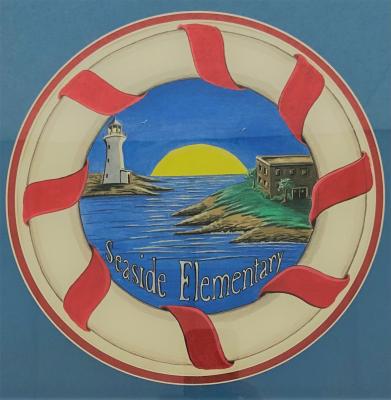Communicating Student Learning
COMMUNICATING STUDENT LEARNING
Student learning is complex endeavour where assessment and communication are part of the same process. We believe that student success depends in part upon the collaborative efforts of all those involved in the education of the child. Collaboration requires that teachers, students, and parents/guardians share a common understanding of what each student is expected to achieve through their educational experiences, as well as an understanding of where the student is in their learning. This School Plan will outline how student learning is assessed and communicated.
At Seaside Elementary School each classroom teacher is a member of a Professional Learning Community (PLC) Team. They meet biweekly to identify learning outcomes and plan how they will be addressed and how students will provide evidence of their learning. Teachers share with the students the criteria by which they will be assessed. They create assessments, interpret evidence of student learning, and make decisions on what steps they need to take to advance further learning.
TOOLS FOR ASSESSMENT& EVALUATION
A variety of assessment strategies are used for assessing student learning.
| Rubrics/Scoring guides | Checklists | Portfolios/Work Samples |
| Models | Presentations/Performances |
Oral and/or written journals, reports, logs |
| Graphic/visual representations | Concept Maps | Experiments |
| Tests | Projects | Conferences |
| Surveys | Observation | Oral Reading Records |
| Self/Peer-Assessment | Questioning |
School-wide/Provincial Assessments |
Assessments
Students are continually provided with on-going descriptive feedback to inform them what they are doing well and what they need to do differently to improve performance.
Teachers distribute a hand-out which informs parents how, assessment of learning, assessment for learning, and assessment as learning are linked to maximizing, sustaining and motivating student learning.
Communication
Teachers use a range, of methods to communicate information about how student learning is developing:
| Class Newsletters | E-mails | Phone Calls |
| Projects/Assignments | Classroom Websites | Parent/Teacher Conferences |
| Rubrics | Student Agenda Notes | Special Events/Performances |
The school year is organized into three terms, each of which concludes with a progress report
(December, March, June)
HRCE report cards provide a Learner Profile as well as a summary about students’ achievement of outcomes with letter grades or developmental scale.
Learning outcomes and expectations which articulate what a student is expected to know, be able to do, and understand, what knowledge, skills, and attributes the student will demonstrate by the end of each grade can be found on our school website, under links.
Your child’s progress is deserving of focused, private, planned conferences, free of distractions. Teachers are not able to meet on an impromptu basis nor are they able to discuss a student’s program or progress during class time. Instructional time includes supervision duty as well as the time spent meeting and greeting students. Parents/guardians who would like to meet with the teacher are asked to contact the school/teacher to arrange a time outside of student contact time by calling the school at 465-7600.
STUDENTS REQUIRING ADDITIONAL SUPPORT
The school is committed to supporting the learning of all students. Timely intervention is the most effective approach in supporting student learning.
The school has a process for the identification, assessment, and the program planning for students with learning needs. Classroom teachers, resource teachers, and parents may initiate and/or assist in identifying students with learning / special needs. When a student is identified as having learning / special needs, a referral is made to the School Planning Team.
The School Planning Team consists of the principal, Vice-Principal, Speech Language Pathologist / School Psychologist, Guidance teacher, Resource Teacher, classroom teachers.
Parents are informed before any intervention / support takes place. Parents are consulted and written permission is required for any formal individual assessment. Parents are informed of the results. The assessment results along with other information will be used in making adaptations to the student’s program or develop an Individual Program Plan (IPP) for the student. The student and the parents/guardians as participants of the program planning team will be involved in making adaptations or developing an IPP for the student.
PARENTAL / GUARDIAN CONCERNS
Throughout the year there may be questions and concerns that arise pertinent to your child’s progress. If you have a concern, you are encouraged to address the teacher first. A meeting can be arranged with the teacher where the administration may or may not be present. If a follow-up meeting is arranged with the administration, resolution of the matter raised will involve the teacher, even if the teacher is not present at all meetings. The goal is to resolve the issues in a climate of mutual respect while maintaining the dignity of all concerned and keeping in mind the best interests of the child.
REVIEW OF SCHOOL PLAN
The School Plan for Communicating Student Learning will be reviewed and amended as needed by the principal after consulting with staff and the School Advisory Council.
FOR FURTHER INFORMATION
Please visit the HRCE website: www.hrce.ca
